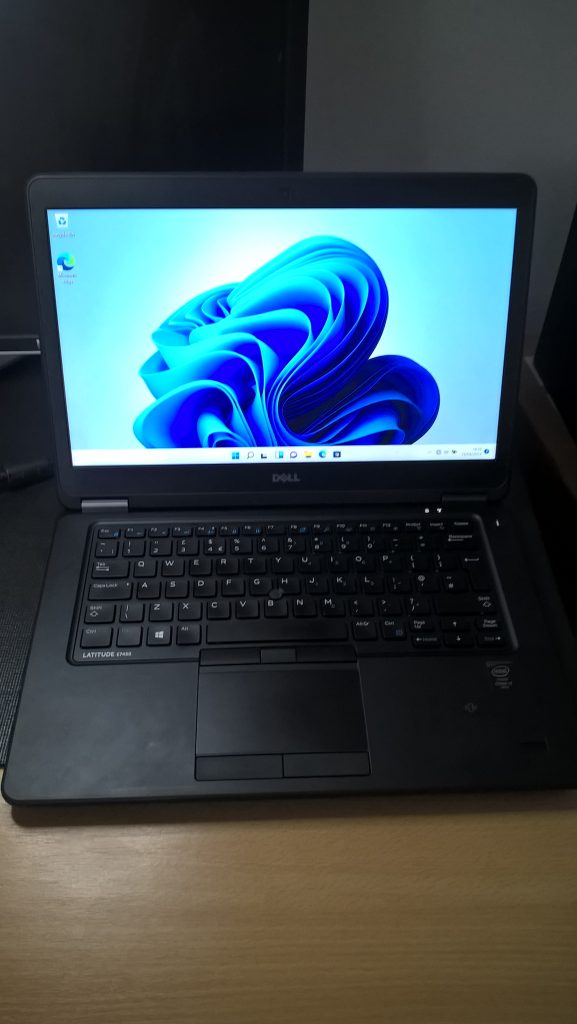Troubleshooting Random PC Reboots during Gaming: A Comprehensive Guide
When you fire up your gaming rig for an intense session, the last thing you expect is for it to reboot at the most inopportune times. For many gamers, this scenario is frustrating, especially when the cause is elusive. One user on Reddit shared their harrowing experience with random reboots while gaming, particularly when playing demanding titles like “Monster Hunter.” Despite checking various hardware components for compatibility and functionality, the problem persisted. In this blog post, we will delve deeper into the causes of random PC reboots during gaming, proper troubleshooting steps, and potential solutions to prevent you from pulling your hair out.
Understanding Random Reboots: What Happens?
Random reboots can be more than just an inconvenience; they can damage your operating system and progress in games, lead to data corruption, and force you to lose hours of hard-earned achievements. Here’s a step-by-step understanding of what happens during a reboot:
-
Black Screen and Power Loss: The user reported a black screen lasting one to two seconds before the system suddenly reboots. This is indicative of a critical error that forces the system to restart.
-
Event Viewer Indications: The Event Viewer logs critical errors with Event ID 41, also known as Kernel Power. This error suggests that the system has rebooted without cleanly shutting down first. Possible causes could include power loss during operation or hardware malfunctions.
-
Possible Triggers: In demanding games like “Monster Hunter,” the load on the CPU and GPU increases significantly, which can expose existing weak points in the hardware or Software configuration.
Common Causes of Random Reboots
Let’s explore some common causes of random reboots during gaming, as highlighted by users in similar situations, and look for troubleshooting steps based on these causes.
1. Power Supply Issues
What to Look For: A power supply unit (PSU) that cannot provide enough power to the components can lead to a spontaneous reboot. This often occurs under heavy load scenarios in gaming.
Troubleshooting Steps:
– Verify the wattage and make sure it meets the needs of your CPU and GPU, especially if you’ve recently upgraded your hardware.
– Consider testing with a different PSU to rule out any issues.
2. Overheating
What to Look For: While the user mentioned that temperatures seem okay, it’s essential to monitor them closely during gameplay. Overheating can lead to immediate shutoffs or restarts when the CPU or GPU is stressed.
Troubleshooting Steps:
– Use Software tools to monitor CPU and GPU temperatures while gaming (e.g., HWMonitor, MSI Afterburner).
– Ensure that case airflow is sufficient and that there are no dust build-ups obstructing fans.
3. Faulty RAM
What to Look For: Random Access Memory issues can cause system instability. Faulty RAM may lead to sudden reboots.
Troubleshooting Steps:
– Run a memory diagnostic tool, such as Windows Memory Diagnostic or MemTest86, to check for defects.
– Try reseating the RAM or using different RAM slots.
4. SSD Problems
What to Look For: Given that the user pointed out issues related to the M.2 SSD, the type and condition of the SSD may play a role. The user mentioned that games installed on the M.2 5.0 slot lead to more frequent crashes.
Troubleshooting Steps:
– Check for firmware updates for the SSD from the manufacturer.
– If possible, try using the SSD in a different slot to see if it has an impact.
– Consider testing the SSD’s health using tools like CrystalDiskInfo to look for errors.
5. Motherboard Issues
What to Look For: Motherboards can have faults that aren’t always visible during standard checks. Sockets may be faulty, or there may be BIOS incompatibilities.
Troubleshooting Steps:
– Update the motherboard’s BIOS to the latest version.
– Check for any physical issues, like damaged capacitors or connections.
6. Software Conflicts
What to Look For: Sometimes, software problems can cause random reboots, including malware or driver issues.
Troubleshooting Steps:
– Ensure all drivers, especially for the graphics card, are up to date (consider clean installs).
– Scan your system for malware using reliable anti-virus programs.
– Disable background applications that may conflict during gaming.
7. Operating System Corruption
What to Look For: If the operating system files are corrupted, they can cause instability leading to restarts.
Troubleshooting Steps:
– Repair Windows using the System File Checker (sfc /scannow) and Deployment Image Servicing and Management (DISM) tools.
– As a last resort, consider performing a clean installation of the operating system.
Preventing Future Issues
Once the root cause of the reboots has been identified and resolved, there are a few steps you can take to potentially avoid similar issues in the future:
1. Regular Maintenance
- Clean your computer’s internals periodically, ensuring that dust does not accumulate on fans or heat sinks.
- Regularly check hardware temperatures and performance metrics, especially under load.
2. Reliable Power Supply
- Invest in a high-quality, well-reviewed PSU with a higher wattage rating than necessary for your current setup.
3. Backup Data Frequently
- Keep regular backups of your important data and game saves using cloud solutions or external storage to avoid data loss in case of issues.
4. Monitor Your Hardware
- Use software to monitor hardware performance during gaming sessions. This might help catch issues before they escalate into hardware failures.
5. Stay Updated
- Regularly update drivers and the operating system to ensure compatibility and security.
Conclusion
Experiencing random reboots during gaming can be frustrating, particularly when you feel like you’ve checked everything. It’s a multifaceted issue that can stem from hardware problems, overheating, software conflicts, or power problems. In cases like the one detailed in the Reddit post, focused troubleshooting and systematic checks can help identify the underlying cause. Whether it’s upgrading the power supply, looking into RAM issues, or resolving software conflicts, taking methodical steps can lead to a more stable and enjoyable gaming experience.
If you’ve tried all these steps and still can’t resolve the issue, it may be worthwhile to consult a professional technician who can diagnose more complex underlying issues. Gaming should be an escape, not a test of patience; fix those pesky reboots, and enjoy your hard-earned gaming victories!
Share this content:




Response to Your Inquiry on Random PC Reboots during Gaming
It’s frustrating to deal with unexpected PC reboots during gaming sessions, especially when you’ve invested in high-quality hardware. You’ve covered almost all the primary troubleshooting points in your post, but let’s delve deeper into some additional steps and checks that might help you identify the root cause of the problem.
Further Steps to Diagnose Random Reboots
Check for Hardware Compatibility: Since you mentioned checking components, ensure that your RAM and motherboard are fully compatible, particularly if you’re using high-speed RAM. Mismatched frequencies or timings can lead to instability under load.
Stress Testing Components: Use stress-testing tools like OCCT for the CPU and GPU-Z for your GPU. Monitor temperatures and stability during these tests to understand if heat is causing the system to reset.
Investigate Power Settings: In some cases, Windows power settings can trigger unexpected reboots. Make sure you’re using the ‘High Performance’ plan in power options. Turn off automatic restart on system failure to